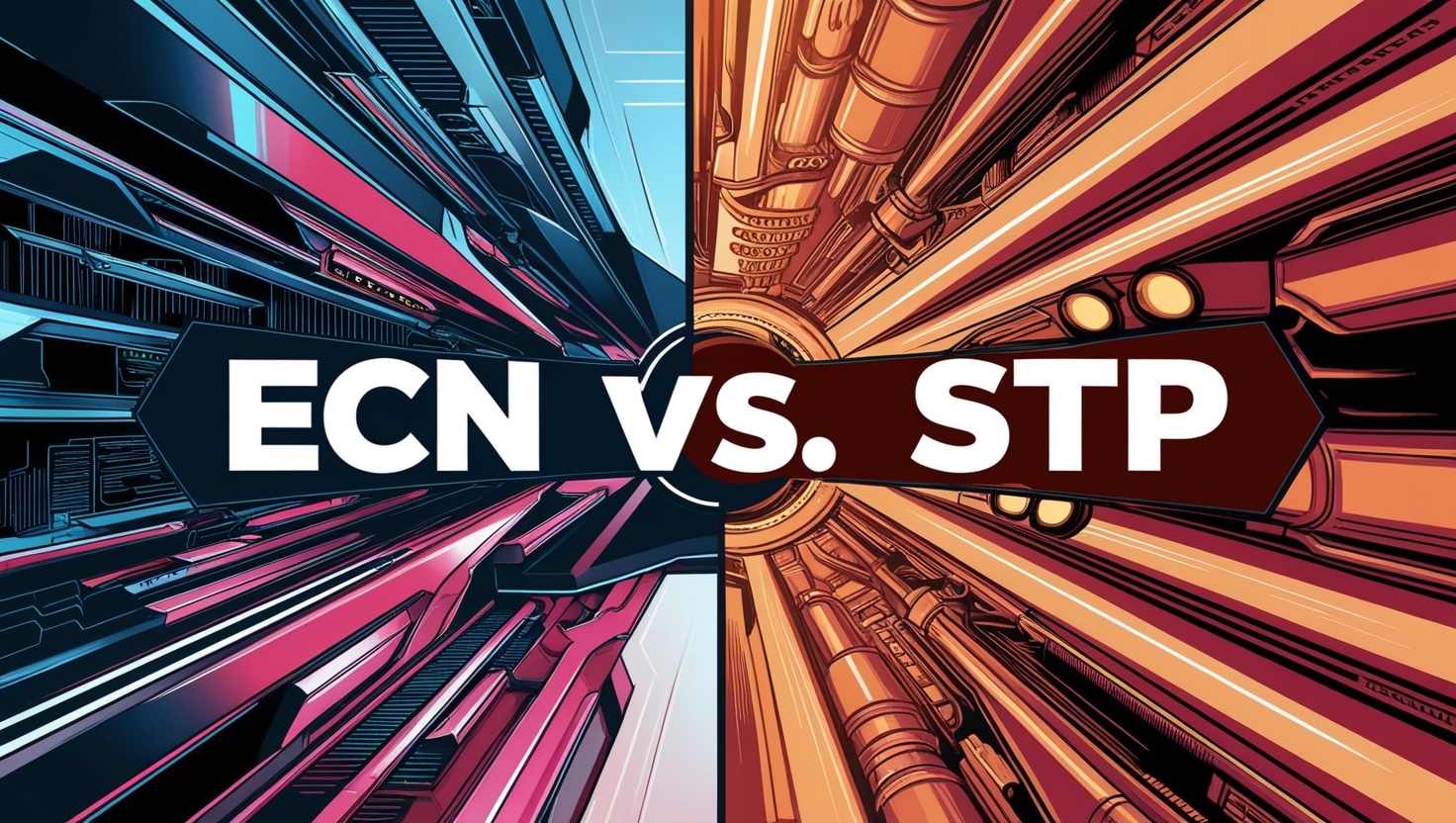
In the ever-evolving world of forex trading, understanding the different types of brokers and their execution models is crucial for traders looking to maximize their potential in the markets. Two of the most popular types of forex brokers are Electronic Communication Network (ECN) and Straight Through Processing (STP) brokers. This article will delve into the intricacies of ECN vs. STP brokers, exploring the difference between STP and ECN and their advantages, and potential drawbacks to help you make an informed decision when choosing a forex broker.
ECN vs STP Broker Cost Comparison
Current Volume: 10 lots
ECN Cost
$0
STP Cost
$0
How it works:
This simulator assumes:
- ECN: $5 commission per lot + 0.1 pip spread
- STP: No commission + 1.5 pip spread
- Average trade size: 1 lot
- Pip values vary by currency pair
Actual costs may vary depending on the specific broker and market conditions.
Understanding ECN and STP Brokers
Before we dive into the comparison of ECN vs. STP brokers, it’s essential to understand what these terms mean and how they operate in the forex markets.
ECN Brokers
ECN brokers, or Electronic Communication Network brokers, provide a platform that connects traders directly with liquidity providers, including banks, other traders, and financial institutions. This direct connection allows for transparent and efficient trading without the intervention of a dealing desk.
Key Features of ECN Brokers
Direct Market Access
Traders can interact directly with other market participants, ensuring authentic market conditions.
Transparent Pricing
Real-time visibility of the order book and market depth for informed trading decisions.
Tighter Spreads
Zero or near-zero spreads on major currency pairs, reducing trading costs.
No Dealing Desk
Orders are matched automatically within the network without intermediary intervention.
Commission-Based Model
Fair pricing through commission per trade rather than widened spreads.
Deep Liquidity
Access to a wide pool of liquidity providers and market participants.
Anonymous Trading
Trader identities remain confidential from counterparties.
Advanced Order Types
Access to sophisticated order types for complex trading strategies.
High-Frequency Trading
Fast execution and low latency ideal for rapid trading strategies.
Price Improvement
Opportunities to secure better prices than the quoted bid/ask spread.
